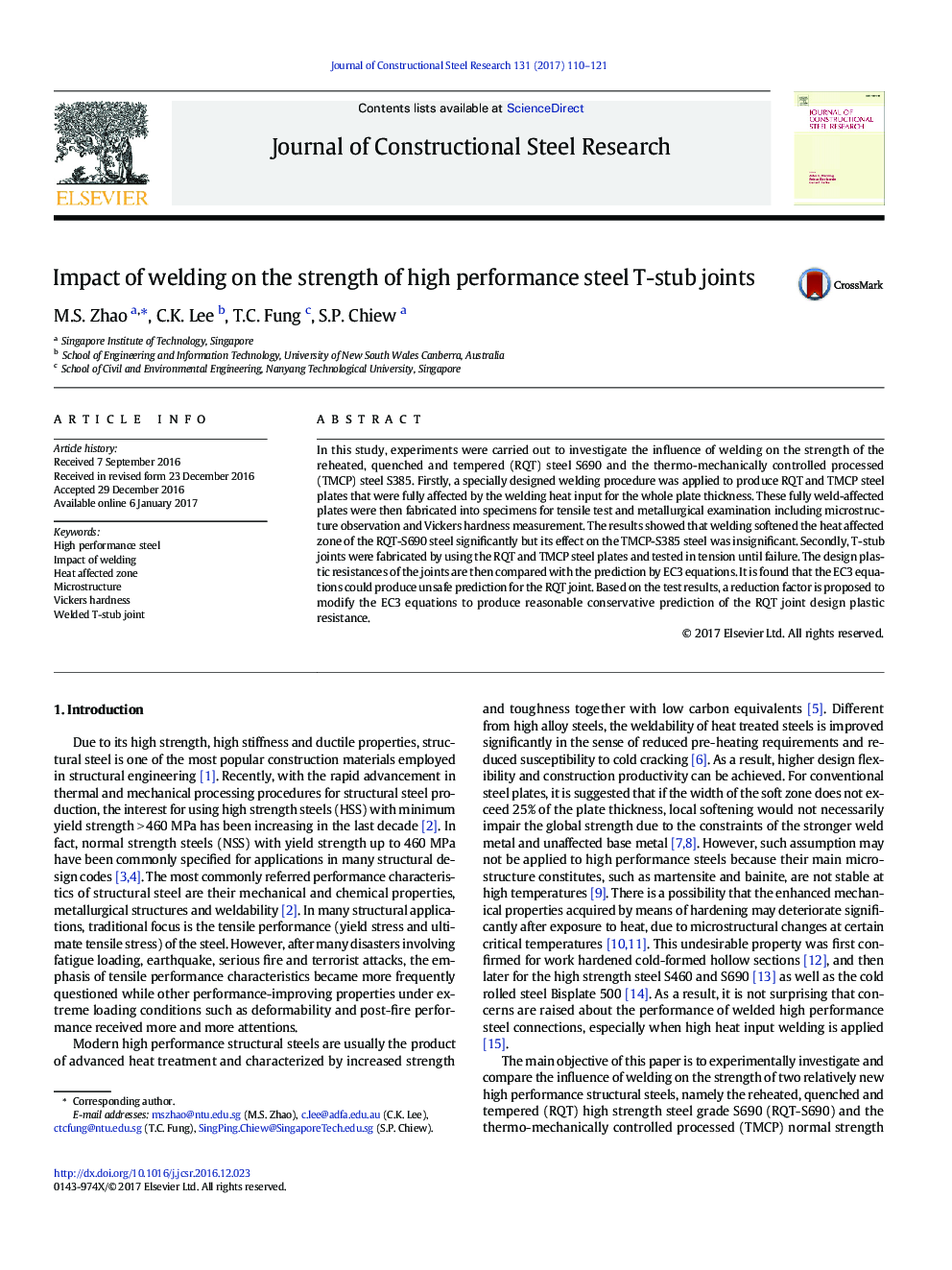| Article ID | Journal | Published Year | Pages | File Type |
|---|---|---|---|---|
| 4923510 | Journal of Constructional Steel Research | 2017 | 12 Pages |
â¢Welding may cause serious deterioration in strength and ductility of RQT-S690.â¢EC3 equations conservatively predict the strength of TMCP-S385 T-stub joints.â¢EC3 equations could overestimate the strength of RQT-S690 T-stub joints.â¢Reduction factor is proposed to modify EC3 equations for RQT-S690 T-stub joints.
In this study, experiments were carried out to investigate the influence of welding on the strength of the reheated, quenched and tempered (RQT) steel S690 and the thermo-mechanically controlled processed (TMCP) steel S385. Firstly, a specially designed welding procedure was applied to produce RQT and TMCP steel plates that were fully affected by the welding heat input for the whole plate thickness. These fully weld-affected plates were then fabricated into specimens for tensile test and metallurgical examination including microstructure observation and Vickers hardness measurement. The results showed that welding softened the heat affected zone of the RQT-S690 steel significantly but its effect on the TMCP-S385 steel was insignificant. Secondly, T-stub joints were fabricated by using the RQT and TMCP steel plates and tested in tension until failure. The design plastic resistances of the joints are then compared with the prediction by EC3 equations. It is found that the EC3 equations could produce unsafe prediction for the RQT joint. Based on the test results, a reduction factor is proposed to modify the EC3 equations to produce reasonable conservative prediction of the RQT joint design plastic resistance.
